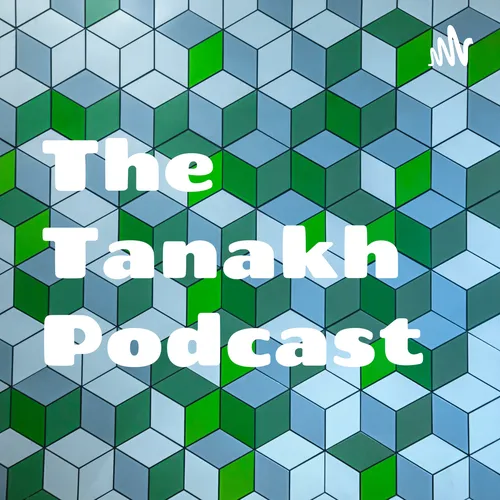
The Tanakh Podcast
Study Tanakh with Rav Alex Israel.
10 mins a day.
One chapter a day.
929 schedule.
- Update frequency
- every day
- Average duration
- 11 minutes
- Episodes
- 767
- Years Active
- 2022 - 2025

Tehillim. Psalm 121 - "I Lift Up My Eyes to the Hills..."
"i lift up my eyes to the mountains. From where will my help come?"
This is one of the most famous and popular mizmorim.
In what context might it have been composed and recited?

Tehillim. Psalm 120 - Hate Speech
This psalm opens one of the most famous sub-sections of Tehillim - the Songs of Ascent or Shirei Hamaalot.
In this podcast we:
1. offer 4 explanations for the term "Shir Ha-Maalot"
2. Study Psalm 120…

Tehillim. Psalm 119 - The Joy of Torah
This - the longest pslam - is a paean to Torah, its study, its laws and the meaning it offers those who walk on the pure path of Torah. Its poetry is wrapped in an delightful eightfold alphabetical a…

Tehillim. Psalm 118 - Down and Up!
Have you noticed the ups and downs of Hallel; how it lurches from elation to the depths of anxious despair in a single line - and then back again?
And why do we double certain lines in Hallel?

Tehillim. Psalm 117 - "Judaism is not for Jews alone"
Our Mizmor invites the world to appreciate the Jewish people and to acclaim the everlasting truth of God's worldview.

Tehillim. Psalm 116 - Promises to Keep
Are vows important? Why is making a vow like buying on credit, and why are vows so central in this Mizmor?
Our answer will take us to the colourful world of the Temple, where people would celebrate i…

Tehillim. Psalm 115 - God in Heaven and Earth
This Mizmor is a struggle with those who mock Israel for worshipping a God they cannot see. In return, the Mizmor mocks and belittles the idolaters who serve man-made ineffective gods.
In response f…

Tehillim. Psalm 114 - Sea Splitting; Hills Skipping!
The Exodus is depicted not merely as an historical revolution; there is a revolution in nature - water turns to dry land; dry land turns to water!
This joyous Mizmor from Hallel expresses the overlap…

Tehillim. Psalm 113 - Hallel!
Chapter 113 starts what we know as "Hallel"
"Where one finds God's greatness; there you find his smallness and humility"
Musical Intro - Mekimi - Yosef Karduner
Musical ending - Mekimi - Yonina

Tehillim. Psalm 112 - Walking in God's Ways
This Mizmor is the mirror image of Psalm 111; but whereas the previous psalm depicted God, now we describe the character of the righteous human individual.
We suggest that the combination of Psalm 1…

Tehillim. Psalms 111 - God's Gifts
A beautiful alphabetical song of praise. The first half deals with God's creation - his universal covenant with mankind; the second half praises God for his particular covenant with Israel and the la…

Tehillim. Psalm 110. Who is the King?
This is a chapter spoken in God's name, seating an unnamed king on a chair at his right-hand side and promising victory over his enemies, priesthood to the nations, and the role of dispensing justice…

Tehillim. Psalm 109 - Sheer Evil
Today we address two themes:
1. VeAni Tefilla - the whole person meeting God in the prayerful moment.
2. David's curses. David issues a litany of curses that no one would ever want poured on his head…

Tehillim. Psalm 108 - Old Psalms; New Kavanna
Psalm 108 is a fusion of segments from Psalm 57 and 60!
What do we make of old texts being "recycled" to make new mizmorim?

Tehillim. Psalm 107 - Redemption Song
Four situations necessitate thanksgiving to God.
This is a chapter that speaks of God's responsiveness to human distress, and the human thanks of God's salvation.
The heading - "Let the redeemed of G…

Tehillim. Psalm 106 - A Rebellious History
This historical Psalm is written from a position of Exile. It speaks of Israel's constant waywardness and rebellion against God, from the days of the Wilderness, until the Land of Israel, frequently …

Tehillim. Psalm 105 - God's Promise
At first glance this is a chapter celebrating the Exodus.
At second glance this is all about God's loyalty to the covenant made with the Patriarchs and the way that God guided history to fulfill that…

Tehillim. Psalm 104 - Planet Earth
This is a beautiful hymn to the magnificence of our world.
We recite "Borchi Nafshi" on Rosh Hodesh, possibly because it mentions the moon, possibly because it speaks of renewal - ותְחַדֵּ֗שׁ פְּנֵ֣י…

Tehillim. Psalm 103 - God's love and forgiveness
This chapter celebrates God's capacity and proclivity to forgive his people.
Academics have studied the language of this chapter and identify it as a Second Temple Psalm. This gives extra meaning to …

Tehillim. Psalm 102 - Bird on a Roof
This Mizmor starts with a desperate call for help.
What is the problem? What's wrong?
Soon we can deduce that the poet is in exile, and yearns for the land, even the stones and dust of the Land of Is…